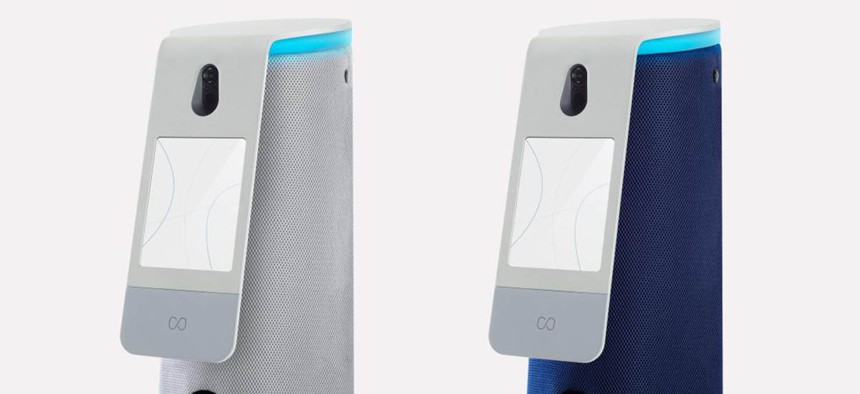Slack Uses Two Robots Named Salt and Peppa to Monitor Office Security After Hours

Quartz/Cobalt
“Humans aren’t great at repetitive, redundant tasks."
Automation is becoming more and more visible.
Whether in the grocery store self-checkout line or in triage at the hospital, the use of robots to automate tasks previously done by humans is becoming commonplace. Now, a host of Silicon Valley companies are bringing robots to the office.
At Slack’s annual conference Thursday, Sept. 6, the workplace-messaging company announced a partnership with Cobalt, an industrial robotics company that builds autonomous security robots. Slack has been using two Cobalt robots, affectionately dubbed Salt and Peppa, to monitor the office after employees go home for the day.
This likely won’t go over well with human security guards, who already have strained relations with big tech companies. Sure, you can stop by the lobby of any large tech company and find engineers chatting with security guards about their weekends or talking about last night’s game. But security guards are still very much second-class citizens in tech companies’ mini-metropolises. Guards who work at Google and Facebook, for instance, have had to fight to earn a living wage and similar benefits as their so-called co-workers.
But to Deano Roberts, global facilities director at San Francisco-based Slack (and a lieutenant colonel in the US Army Reserves), the company’s use of Cobalt’s security robots isn’t about replacing humans; it’s about safety.
“Humans aren’t great at repetitive, redundant tasks,” Roberts says. “Guards simply doing their rounds are really bad at picking up on the subtleties of a workspace.”
The Cobalt robots, on the other hand, autonomously roam the office after normal working hours to pick up on any subtle anomalies—from a flickering light to a human who might seem out of place. When they do come across a potential problem, a human “driver” comes to life on the robot’s video screen to assess the situation via video chat.
“The real meaningful solutions still need to be made by humans,” says Roberts. “There are still human security guards even though they’re not on site. There are still people developing this product.”





